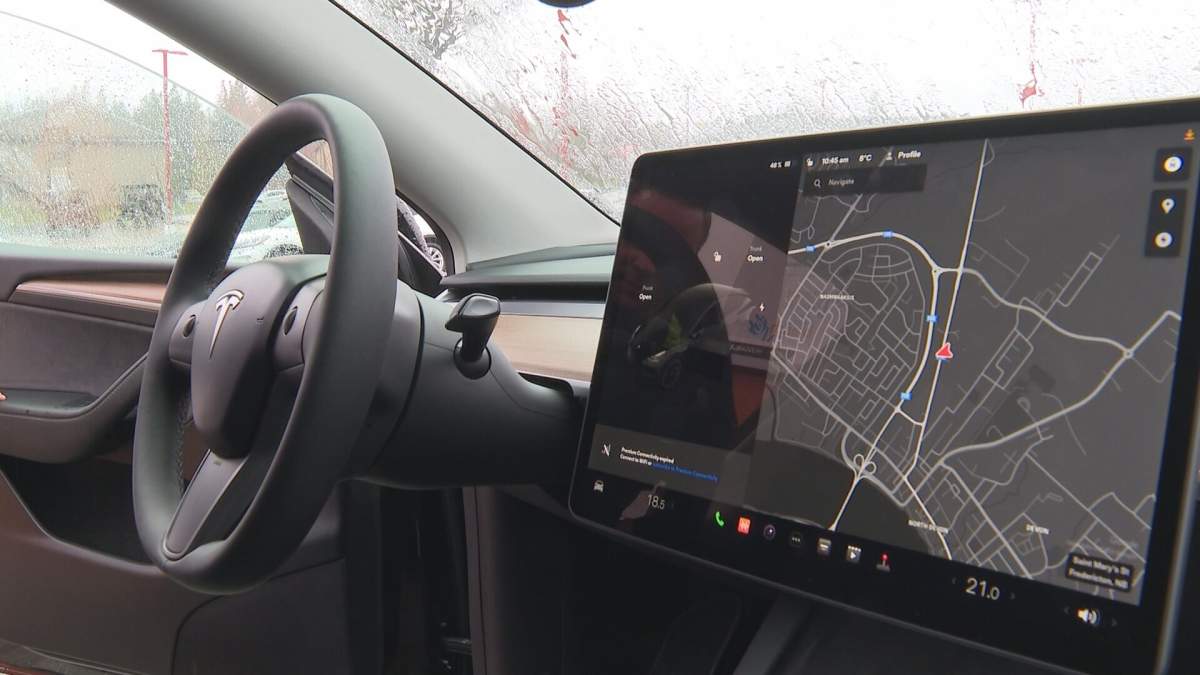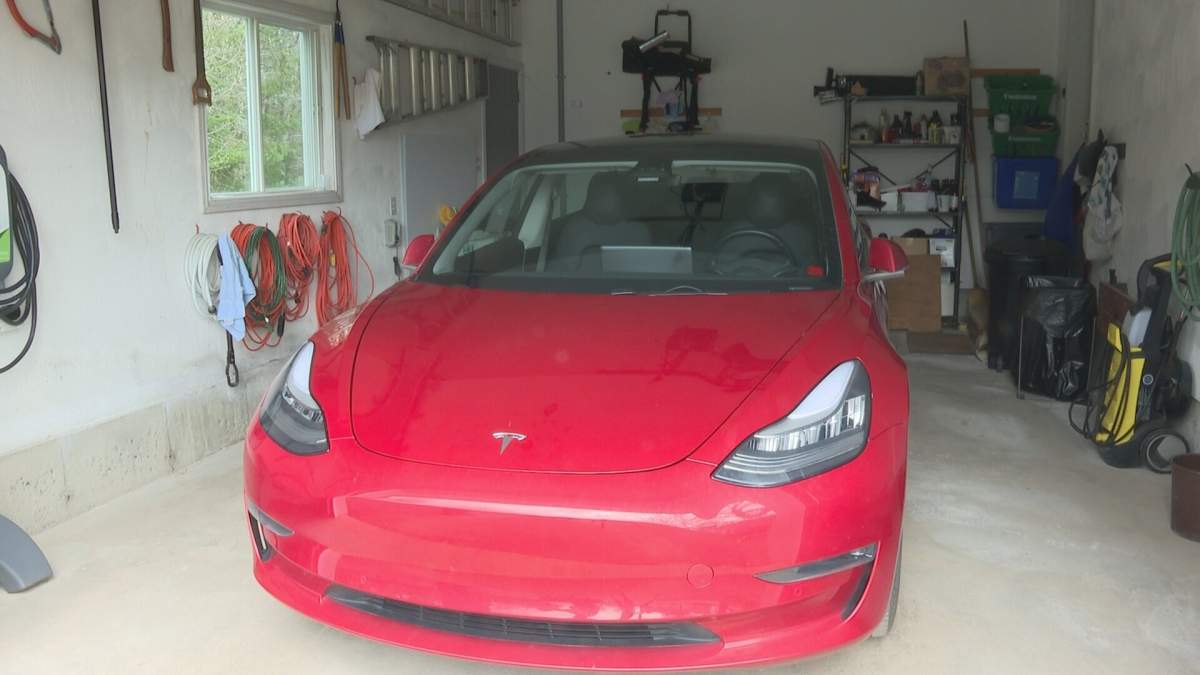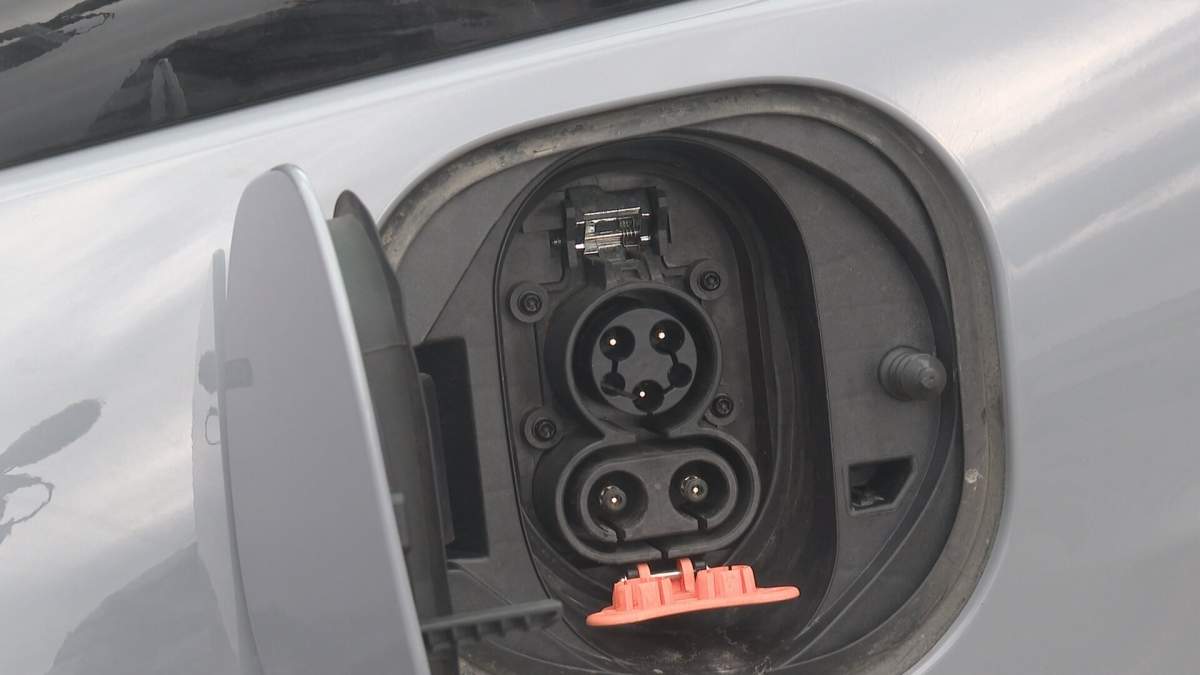For Carl Duivenvoorden, the transition to a fully electric vehicle (EV) was progressive.

He and his partner began with a gas-hybrid plug-in model before switching to his Chevrolet Bolt.
Like most people, he had pre-purchase concerns about range, battery degradation and cold weather performance, but over time those concerns eased.
“We learned to build the battery range into to our subconscious while still having that gasoline back up, so it got us into the mindset of driving electric,” he said in an interview.
Since switching to a full EV, though, Duivenvoorden said it was absolutely the right decision. He uses the lowest level charger because he does mostly local driving.
Duivenvoorden said he does think the charging network in the province did get a good launch, but it does appear to be lagging behind the number of EVs being purchased.
Most people do charge at home, but trips of any distance require some reliability on the public charging network.
“The downside is, the network hasn’t expanded its capacity even as, in the province, we’ve gotten more EVs on the road,” he said. “We still typically have in our network just one charger at each location.”
He said in the past, it would be easy to find somewhere to plug in, but said it has become increasingly difficult to find an available charger in public spaces.
By the numbers
In 2022, New Brunswick registered 571 fully electric vehicles, up from 270 the year prior.
According to StatsCan, it also includes 1,530 hybrid-electric vehicles, which share both an electric battery and gas. An additional 290 plug-in hybrid-electric vehicles were also accounted for, up from 202 the year prior.
The number of chargers pales in comparison to the number of electric vehicles registered in the last year, keeping in mind many people who buy an EV also get a home charger.

Get daily National news
NB Power said it has 80 level 2 chargers, which can range between six to eight hours for a full charge on an EV, and 31 level 3 chargers, taking only 40 to 60 minutes to give a car 80-per cent battery.
- OpenAI’s handling of Tumbler Ridge shooter info opens regulation questions
- OpenAI reps summoned to Ottawa to discuss concerns following Tumbler Ridge shooting
- Blizzard slams into northeastern U.S., with intense snow and travel bans
- Minister ‘disappointed’ in OpenAI, but why is AI regulation taking years?
For Robert LeBlanc, the sparsity of charging availability in northern New Brunswick can be a real challenge.
He owns a Tesla, having been persuaded by his kids to go fully electric.
“One of the first findings was the lack of surge capacity for level 3 charging,” he said. “For a Tesla, not too bad. The problem is when you go to the northeast quadrant of the province.”
He said the Tesla network stops after Moncton, so you need an adapter to get onto chargers that are third-party, including the ones provided by NB Power.
“If I pull into Bathurst, I better hope that no one is at that charger, right? So I’ll end up getting to that charger … if somebody else is there, I have to wait, so that’s problem No. 1,” he said.
LeBlanc said it appears Quebec, from his experience, is light years ahead on charging capacity and availability.
For him, it isn’t just about having enough for homegrown EV users, but those who may come to the province during the tourism months and find themselves waiting hours to access a charger.
‘Demand is exceeding public charging infrastructure’
NB Power said it acknowledges demand is exceeding the public charging infrastructure and plans to install 19 more level 3 DC chargers in the next 12 months.
“NB Power will partner with municipalities and businesses to add sites where charging is not available, install additional chargers along provincial corridors at both existing sites and where gaps currently exist and target installations throughout the hospitality sector,” the utility said in a statement.
Tom McLean first went electric in 2014, and upgrade to a Tesla model 3 in 2019.
He said that it seems for non-Tesla EV owners, the sales have outpaced the infrastructure. Tesla chargers only work with Tesla cars.
“One of big things about Tesla is they were thinking about the whole environment,” he said in an interview. “For example, Tesla SuperChargers are everywhere now. So, when it comes to travelling, it’s pretty easy to pull into supercharger and get your charge and hit the road again.”
McLean said that isn’t the case for other EV models, with many places only have a single non-Tesla based charger.
“There are a lot more EVs on the road than when I started, and so what’s happened, especially for non-Tesla drivers, they tend to overwhelm the fast charger network that is out there,” he said.
The Department of Natural Resources and Energy Development said the entire network in New Brunswick includes 168 public charging stations and 46 fast chargers.
In a statement, the department said it believes the current network supports the number of EVs on the road, but will need to continue to grow as do the sales of EV.
Mike Quinn bought his Kia Soul EV and said there have been bumps in finding available chargers.
“It’s definitely a learning curve, getting used to the public charging,” he said.
He said a number of times this summer, he’s waited several hours to plug in his vehicle at one of the level 3 stations at Irving Big Stops between Moncton and Fredericton.
“It might take you two hours to get that charge,” he said. “As long as you’re not in a hurry.”
EVs in demand: sellers
For sellers, the EVs have become popular.
Jim Gilbert’s Wheels and Deals sells used Teslas as well as other EV models.
Peter Lowe said the Tesla is the most popular model, but he said often times it’s a matter of doing the research and being in the right place for an EV.
“It’s very important to us that we have honest conversations about the vehicles they are buying,” he said.
Lowe said being prepared and informed also means understanding the current limitations of the public charging network, but believes with time, it will improve.
“Designing the right infrastructure is going to be really important rather than just putting out EV chargers,” he said.
“Understanding which one matters and which one EV buyers are going to use is a really important piece to making this work.”











Comments
Want to discuss? Please read our Commenting Policy first.